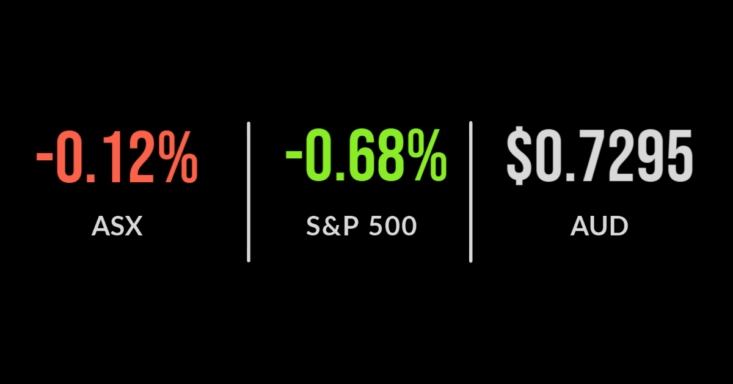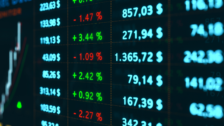Commonwealth Bank’s (ASX:CBA) best week
ASX keeps delivering, Commonwealth Bank’s (ASX:CBA) best week since 2011, US markets flat
It was a strong week for the Australian market, the ASX200 (ASX:XJO) heading 2.1% higher despite an ASX shutdown on Monday and a weak close on Friday.
The strength was clearly driven by the financial sector with CBA enjoying its best week since 2011 finishing 10.8% higher.
The end of week spike came after APRA flagged a loosening of the ‘dividend cap’ applied during March.
Once again, Insurance Australia Group (ASX:IAG) was among the hardest hit, being forced to raise $750 million in capital after a court decision that threatens its profitability and potential opens huge liability for business interruption insurance.
Management also flagged remediation in the announcement, with some $70-90m in agreed but not issued premium discounts.
On the positive side, Mesoblast (ASX:MSB) received a short of support after global giant Novartis (CHF:NOVN) agreed to provide a $50 million capital injection to fund the commercialisation of the Remestemcel-L regenerative medicine; shares finished 11.3% higher.
US markets weaker, Federal Reserve and Treasury at odds, Europe beginning to turn
US markets were broadly weaker for the third week of November, the S&P falling 0.7% on Friday sending it down 0.8%, but the Nasdaq eking out a 0.2% gain on the back of Tesla Inc. (NASDAQ:TSLA) incredible run. Political risk has continued to increase, coming head to head with the huge spikes in COVID-19 cases which are clearly making investors nervous.
On Friday the US Federal Reserve and Treasury Department, who together deliver the current fiscal and monetary policy, had a public spat with Treasury calling for unused stimulus to be return and redirected; this would clearly be a negative for the US economy.
On a positive note, 472 S&P500 companies have now reported with 85% beating expectations.
Back in Australia, explosives maker Orica Ltd (ASX:ORI) reported a 31% fall in profit to $168 million as a reasonably protected industry felt the pain of COVID-19 demand reductions, particularly in the US were 50% of revenue is sourced.
Volumes were 1% lower with weak pricing sending revenue down 5% to $5.61 billion and the company now generates around 20% of revenue from the booming gold sector; shares fell 4.1%.
‘Don’t hug the index’, attention to detail, divergent global economy
One of the more powerful takeaways this week was the comments of minister Jane Hume when asked about the Federal Government’s industry super fund performance assessment tool.
Minister Hume was quoted as saying boards ‘don’t hug the index’ and ‘go and seek alpha’ rather than simply cutting costs and giving members a passive exposure, they could potentially build themselves.
Attention to detail, for lack of a better term, was in focus this week with shareholders in both the ASX (ASX:ASX) and broader insurance sector taking a hit.
In the case of the former, it was the failure of their ASX’s trading and support platforms for the longest period in decades and the latter, the reliance of a since extinguished legislative term to protect from business interruption insurance claims; both will have a significant impact on profits.
Market’s reiterated that the pandemic is not over despite positive vaccine news, with the US underperforming the rest of the world as COVID-19 cases remained above 150,000 and employment fell.
The best comparison is back at home, where retail sales have improved 1.6% in October, unemployment remains at just 7.0% and conditions return to normal.











